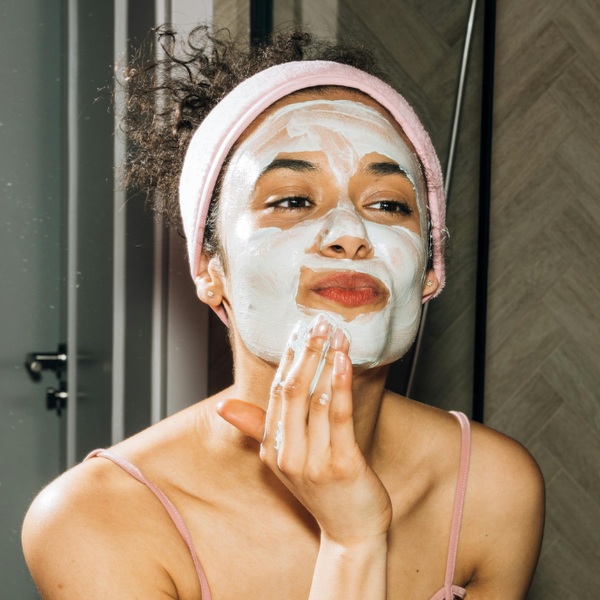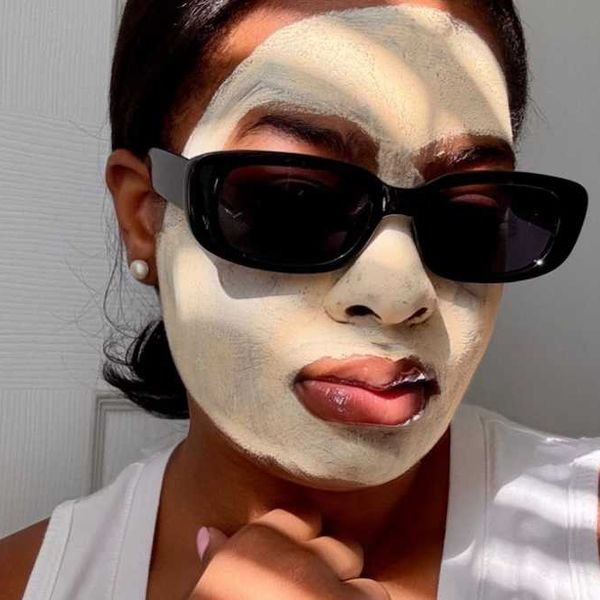Simplifying skincare, one definition at a time.
73 Skincare Ingredients You're Using And What They Mean

Olivia Taylor (she/her) is a writer, self-proclaimed reality TV buff and uses "Real Housewives" references unironically. Her camera roll is filled with Twitter screenshots and she will definitely talk your ear off for as long as you will let her. Find more of her pop culture ramblings just about anywhere on the internet.
Nowadays, there are so many skincare buzzwords saturating social media and beauty websites. Hyaluronic acid, niacinamides, vitamin C…you get the gist. But what do these skincare ingredients actually mean? And what will they do to your skin? With so many products constantly marketed toward us, it’s hard to know what’s good or bad. We get it, and we’re here to help.
We’re on a mission to debunk the mystery behind your favorite skincare ingredients, so you can make thoughtful, informed decisions when the next “life changing” product flashes across your FYP. Keep reading for a comprehensive breakdown of some of the most popular snailbuzzwords, and what they’re useful for.
Amino Acids
Amino acids are the building blocks that make up proteins, and have a role in virtually all the biological processes that occur in our bodies. The sequence in which they combine determines which particular protein they will form and how they will function. When added to skincare products, they are known to hydrate the skin, increase water retention, reduce inflammation, and protect the skin via antioxidants.
Argan Oil
A great hydrator, argan oil helps protect against environmental damage, offers moisture and nourishment to the skin, and soothes irritation.
Antioxidants
Antioxidants are a major component of healthy, glowing skin. They can reverse and prevent free radical damage (AKA premature aging, inflammation, hyperpigmentation, etc.). If your products lack antioxidants, then your skin is left at the mercy of these free radicals, which isn’t good for anyone.
Benzoyl Peroxide
If you suffer from acne, benzoyl peroxide has probably been on your radar for a while. Whether you opt for over-the-counter or prescription-grade products to treat your acne, benzoyl peroxide will work to deep-clean your clogged pores and eliminate symptoms like pimples.
Biotin
Biotin is a supplement that contributes to overall skin health, though it should only be taken if you are diagnosed with a deficiency.
Caffeine
When ingested, caffeine acts as a stimulant. When applied topically, it can act as a brightener, but it likely doesn't have the same effects on your skin that more sleep would.
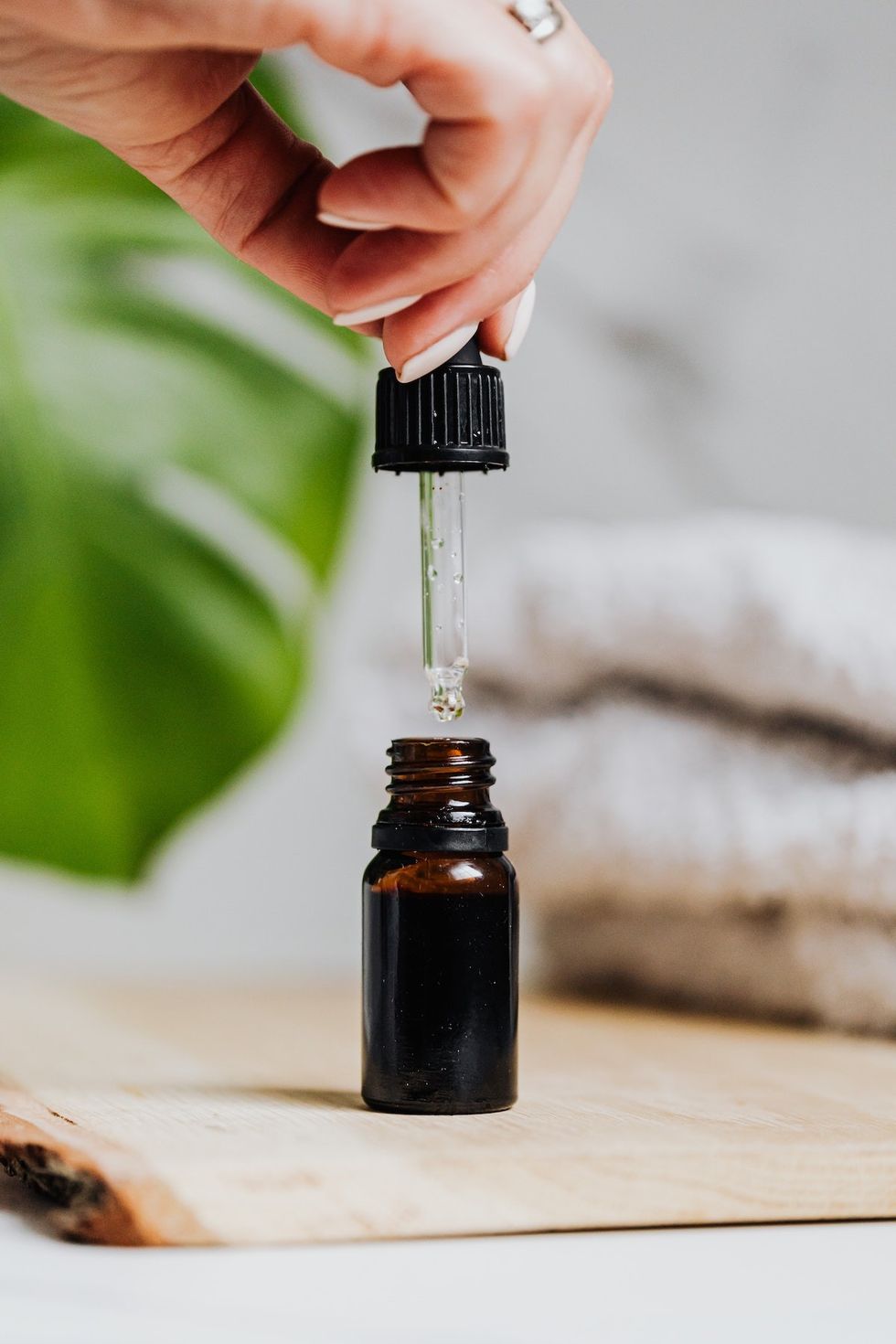
Image via Karolina Grabowska/Pexels
Castor Oil
Castor oil is a moisturizer for the skin, hair, and nails, and can be used alone or with other products. While pregnant women shouldn’t ingest it (as it can cause premature labor), when applied to the skin it can protect against wrinkles, speed up hair growth, and fight bacteria, among other things.
CBD
CBD is an antioxidant that can reduce inflammation, regulate oil production, and neutralize free radical damage. It’s recommended for those with inflamed, compromised skin, sensitive and dry skin types, or aging skin. Since CBD is an unregulated industry, you can’t be totally sure how it will mix with your other products. It’s not recommended to use CBD skin products that contain alcohol, as this might combat its beneficial effects and heighten inflammatory skin conditions.
Ceramides
If you want plump, moisturized skin, you should definitely consider adding a product with ceramides to your routine. Ceramides rebuild and restore the protective barrier of the skin to retain moisture, improve visible signs of aging, and block environmental damage.
Charcoal
This natural ingredient has long been used in medicine to remove toxins in the body, but the idea that charcoal can do the same for your skin has never actually been proven. Theoretically, charcoal can remove excess oil, so those with oily skin would benefit the most from trying a charcoal-based skincare product.
Citric Acid
Citric Acid is an alpha-hydroxy acid which promotes exfoliation and skin cell turnover, in addition to serving as a good source of antioxidants.
Cocoa Butter
Say hello to the natural, antioxidant-rich moisturizer of your dreams. Stemming from the cacao bean, cocoa butter is known for its ability to heal chapped skin, its moisturizing benefits, and its great anti-aging properties.
Coconut Oil
Coconut oil is good for your skin thanks to its natural antibacterial and moisture-retaining properties, but it may increase breakouts in acne-prone skin.
Collagen
Collagen is the most important structural protein in our skin and is responsible for giving us plump, youthful-looking skin. While it won’t necessarily stimulate other collagen, collagen is known for having great moisturizing benefits when applied topically.
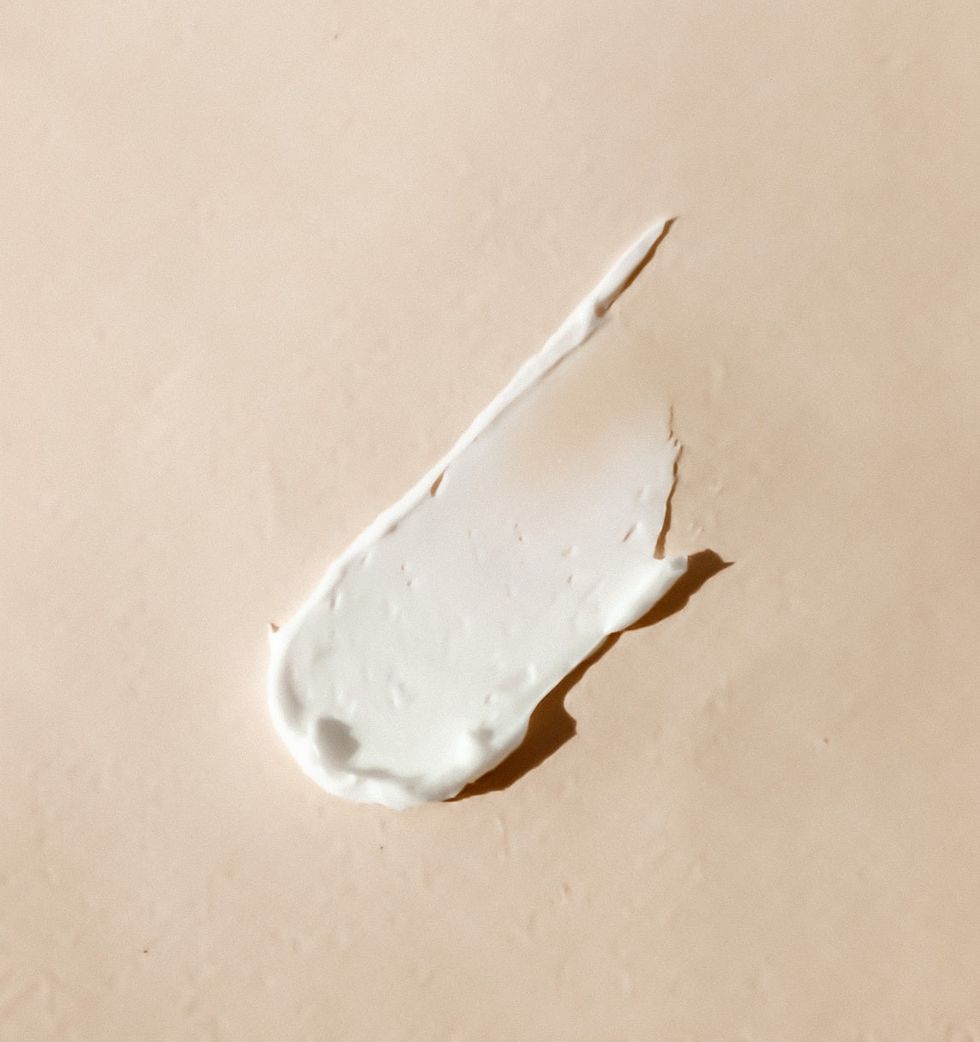
Image via Kelsey Curtis/Unsplash
Colloidal Oatmeal
Oatmeal is a natural savior for dry skin, protecting and preventing water loss while soothing. Most eczema girlies are all-too-familiar with this product, as it’s great for those with dry skin types or skin conditions, like dermatitis and eczema.
Copper Peptides
Copper peptides serve as retexturizers, delivering antioxidants and stimulating collagen production.In general, copper peptides are great for anyone looking to get rid of hyperpigmentation.
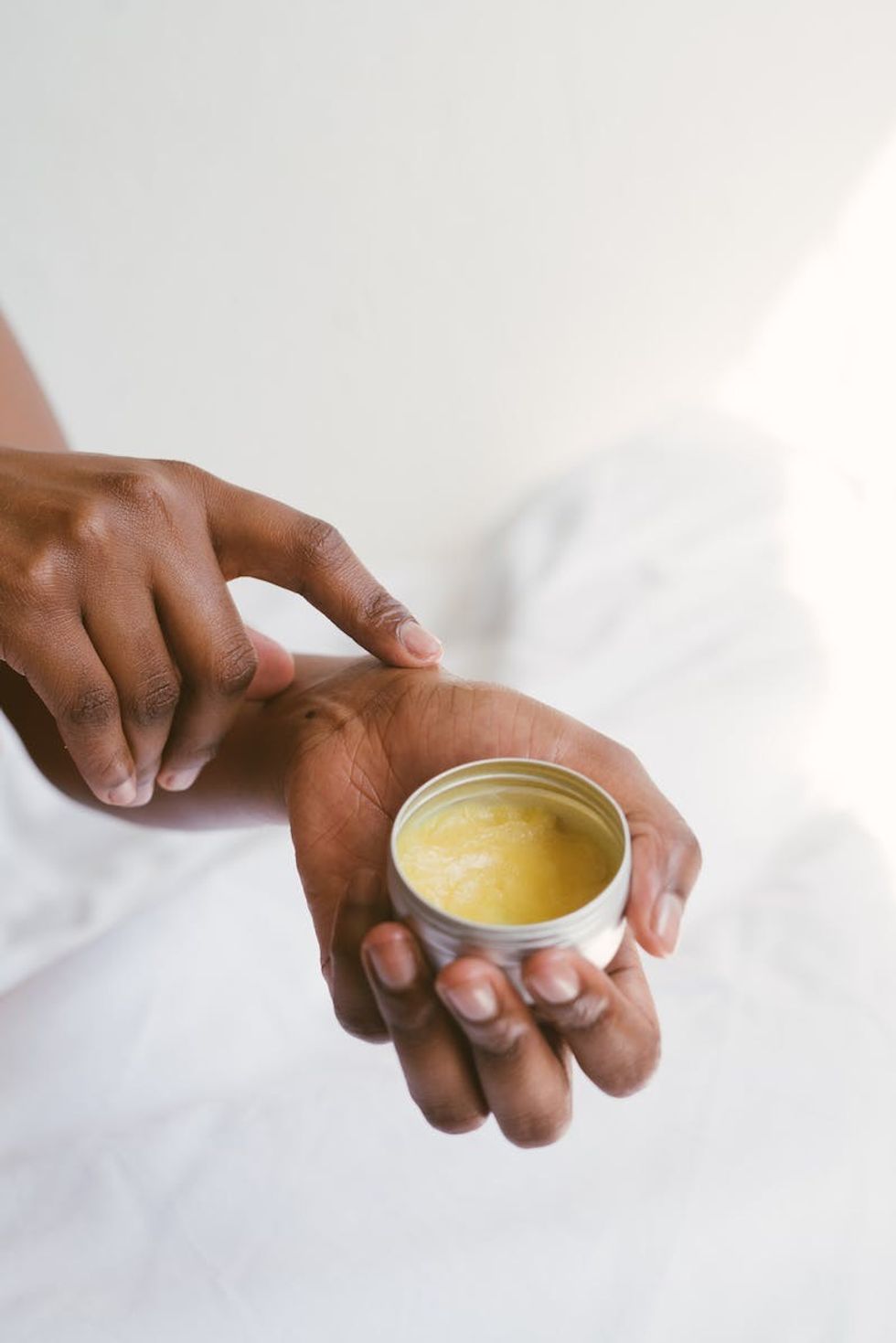
Image via RF._.studio/Pexels
Glycerin
Glycerin works as a humectant, attracting moisture from the air into the top layer of skin and penetrating deep to hydrate.
Glycolic Acid
This acid acts as a chemical exfoliant by loosening the bonds between dead skin cells while helping to treat acne. Glycolic acid also stimulates collagen production and acts as a humectant, attracting moisture to the skin.
Hemp Seed Oil
Hemp seed oil is great for people with acne-prone or combination skin. Working as a hydrator, it can reduce inflammation, hydrate, and regulate oil production.
Hyaluronic Acid
Undoubtedly one of the most well-known skincare ingredients, hyaluronic acid moisturizes skin, reduces appearance of wrinkles, replenishes cell moisture, and speeds wound healing when you use it in your regimen.
Hydrocortisone
Known for its anti-inflammatory properties, hydrocortisone can be used as a spot treatment to reduce redness and inflammation from breakouts.
Hydrogen Peroxide
Hydrogen peroxide is a common antiseptic agent used to kill bacteria, heal wounds, and dry pimples.
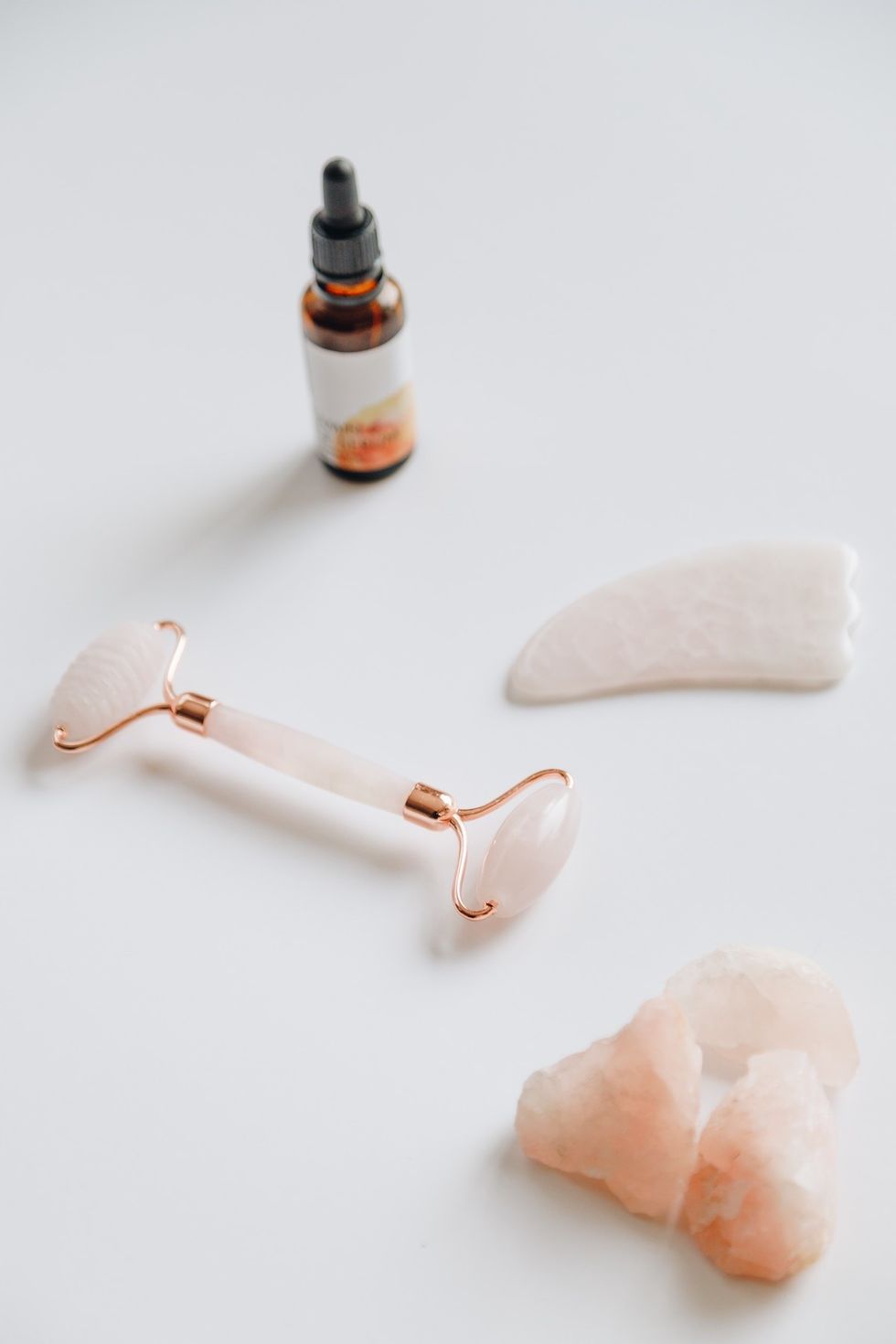
Image via Viva Luna Studios/Unsplash
Jojoba
Jojoba oil hydrates the skin, balances natural oil production, delivers antioxidant protection, has anti-inflammatory effects, and can help reduce acne.
Lactic Acid
Use this skincare ingredient as an exfoliator to create firmer, thicker skin. It can also result in fewer fine lines, wrinkles, and acne lesions.
Lanolin
Lanolin is an emollient that locks moisture into the skin, rejuvenates and heals the skin, allowing it to moisturize itself from within.
Lavender
This essential oil has a variety of great skincare benefits, including: soothing skin, improving acne, protecting against free radicals, and combating bacterial and fungal disorders.
Magnesium
Magnesium is a calming agent, potentially making it a great candidate for treating rosacea, acne, eczema, and minor skin irritations.
Manuka Honey
Manuka honey is an antibacterial, antiviral, anti-fungal, AND an anti-inflammatory and humectant. This natural product boasts powerful antibacterial and anti-inflammatory properties, moistures the skin, and can soothe irritated skin conditions like eczema and psoriasis.
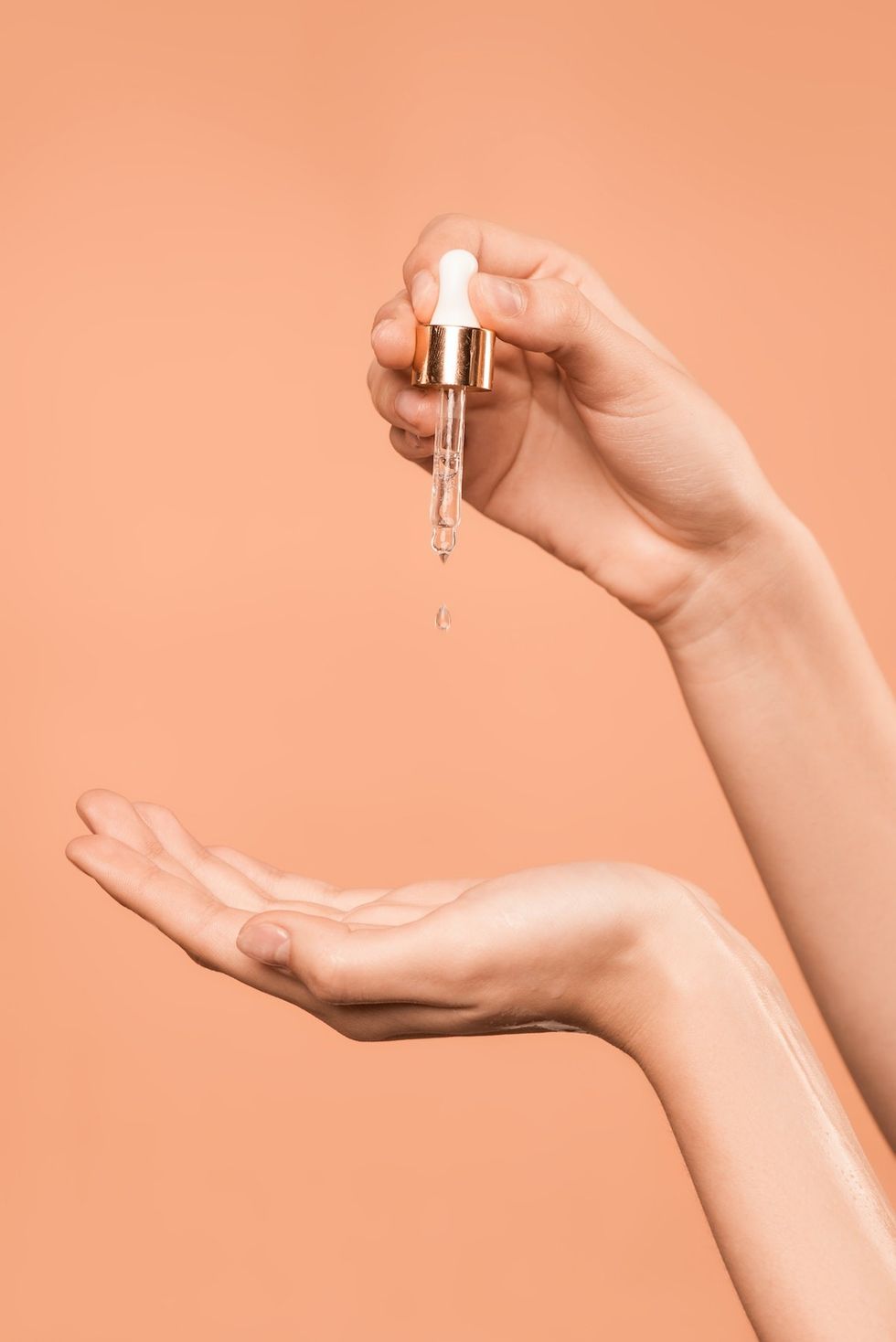
Image via Shiny Diamond/Pexels
Marula Oil
Good for all skin types, marula oil seals-in hydration and softens skin, offers antioxidant protection, has anti-inflammatory effects, and has some antibacterial properties.
Mineral Oil
Mineral oil locks moisture into the skin, softens, and improves skin barrier function.
Moringa Oil
This antioxidant-rich oil hails from the Himalayan mountains. It, reduces fine lines and wrinkles, improves the overall appearance of the skin, and soothes inflammation.
Niacinamides
When we think about the skin benefits of niacinamide, we're referring to a specific form of B3 (an amide) called nicotinamide (synonymous with niacinamide). Nicotinamide is an essential water-soluble vitamin, which is not synthesized in the body, meaning we have to eat it to receive its benefits. In order to reap the brightening benefits of nicotinamide, it needs to be ingested via supplement or applied topically to the skin.
Oat
Oat is a true powerhouse ingredient. It’s a gluten-free, nutrient-dense whole grain that is a great source of important vitamins and minerals, such as manganese, iron, and zinc.
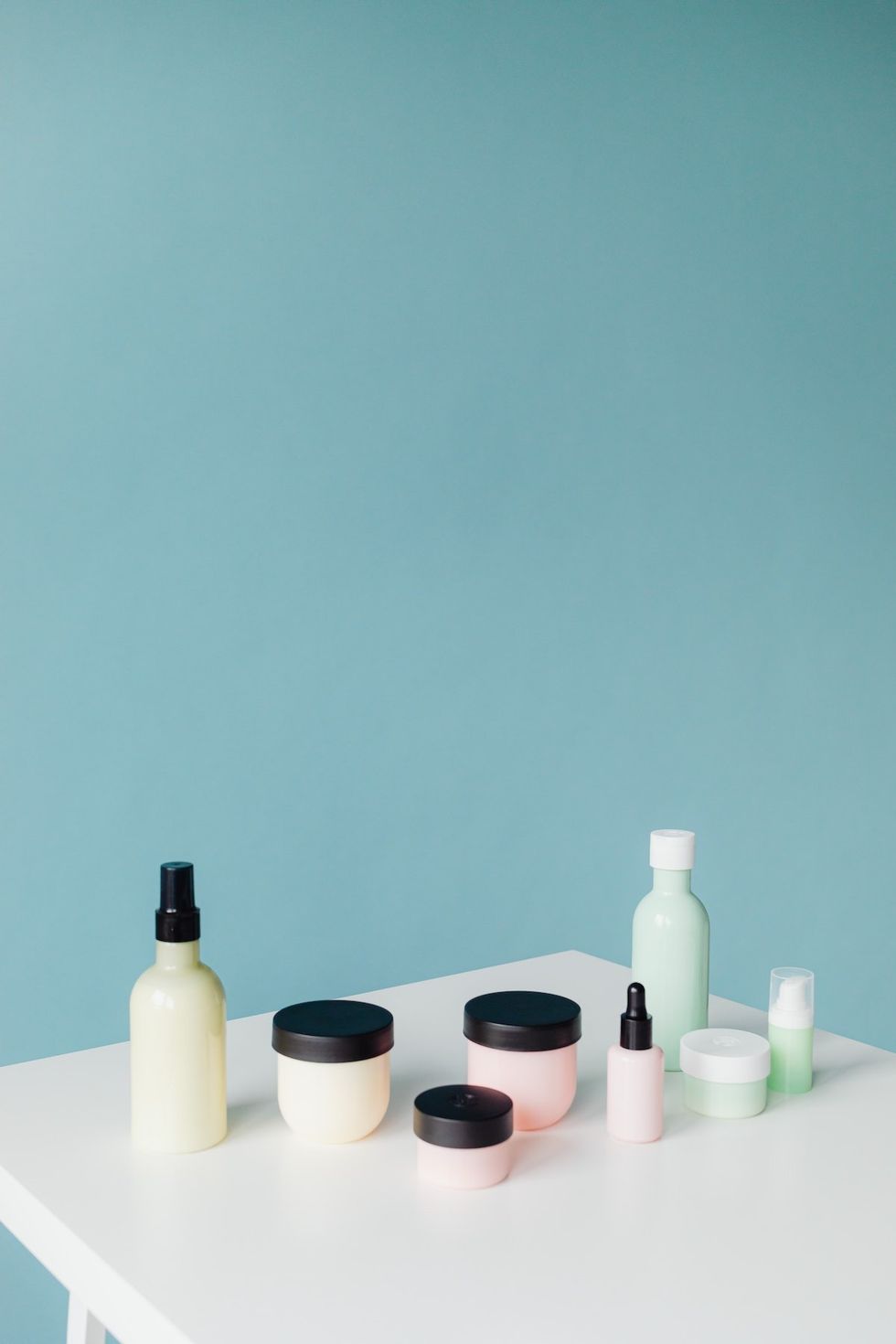
Image via Karolina Grabowska/Pexels
Omega Fatty Acids
These fatty acids help keep the outermost layer of our skin strong and healthy, and subsequently prevent moisture from escaping, while also helping to smooth the surface of the skin.
Oxybenzone
This organic compound may protect you from UVA and UVB light exposure (and, in turn, help avoid the need for sunburn relief) but it is known for being bad for the human body.
Parabens
Parabens help to keep active ingredients stable, effective, and free from harmful bacteria growth.
Petroleum Jelly
This dry skin saver seals in moisture, soothes cuts and abrasions, and accelerates the healing process.
Polypeptides
Polypeptides are a protein that smoothes fine lines, increases collagen production, and decreases the appearance of pores.
Probiotics
A bacterial supplement, probiotics calm internal and external inflammation, restore the skin barrier function, and offer protection from harmful environmental particles.
Propolis
Widely known as an antioxidant, anti-inflammatory, and antimicrobial skincare ingredient, propolis heals wounds, treats acne aftermath, and protects the skin.
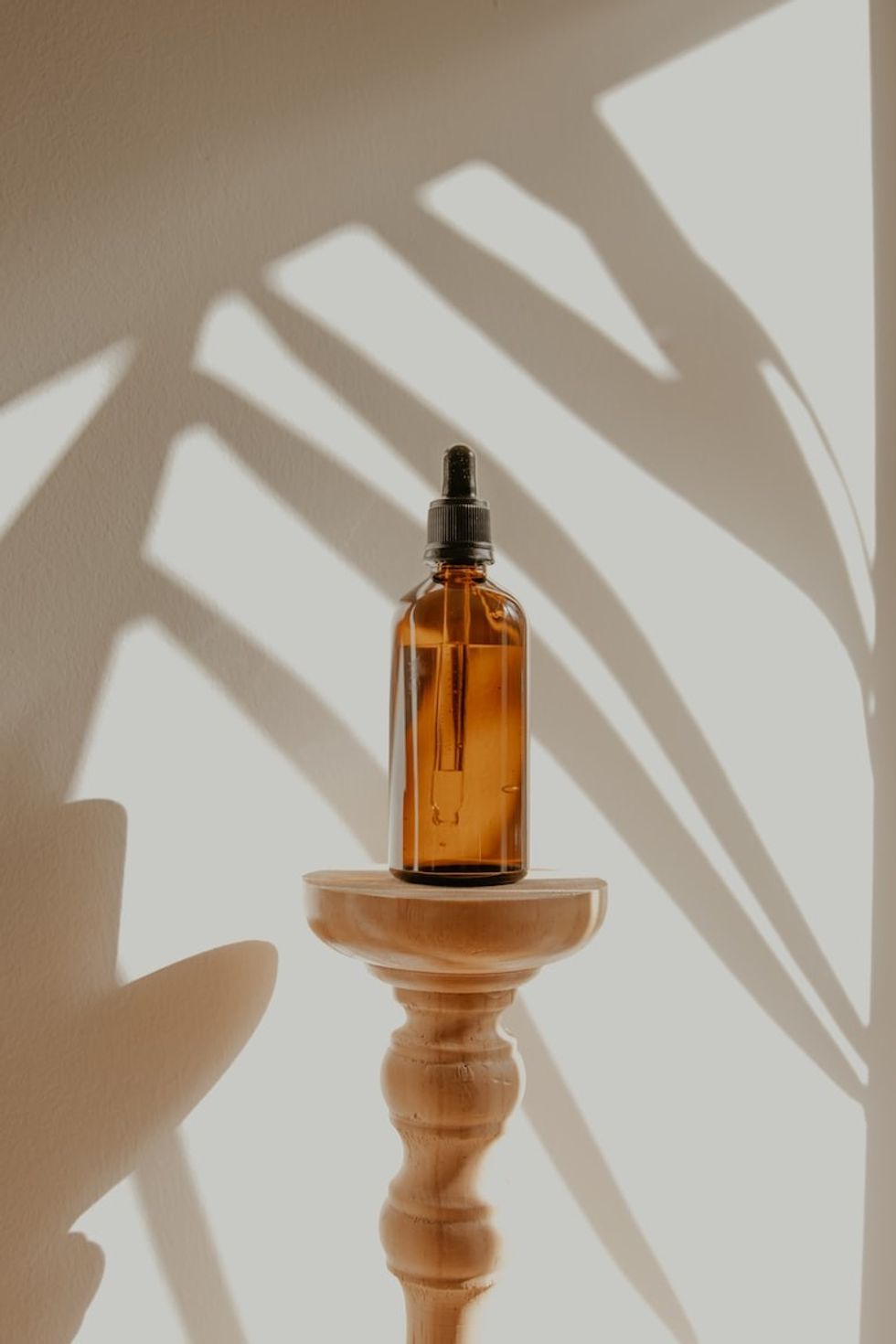
Image via Kadarius Seegars/Unsplash
Retin-A
Retin-A is an exfoliant which increases cell turnover and plumps your skin with rich antioxidants.
Retinol
Retinol is an antioxidant that increases cell turnover, boosts collagen production, and regulates oil production.
Rosehip Oil
This oil is known for brightening and evening out the skin, as well as its regenerating and healing properties. It also helps with anti-aging, elasticity, and collagen production.
Rosemary
If you’re dealing with acne — rosemary oil is for you! A potent antioxidant, rosemary leaf extract protects the skin and prevents signs of premature aging while calming skin conditions like eczema and acne.
Salicylic Acid
Salicylic acid is an ingredient extracted from willow tree bark, and serves as one type of chemical exfoliant called beta-hydroxy acid (aka BHA). Thanks to its unique properties, salicylic acid is great for unclogging pores, exfoliating dead skin, removing excess oil and combating acne.
Sea Buckthorn Oil
Shockingly not from the ocean, sea buckthorn oil is derived from sea buckthorn berries, which carry 10 times more vitamin C than an orange and are the third-highest source of vitamin E among plants. It’s rich in antioxidants, moisturizes the skin while regulating oil, improves skin tone, and more. Basically, sea buckthorn oil is the new glow-maker of your dreams.
Sea Moss
Sea moss is a seaweed extract that hydrates skin, and can reduce severity of acne and inflammation.
Shea Butter
Shea butter is a plant lipid that comes from African shea tree nuts and is rich in fatty acids, antioxidants, and vitamins. It’s an incredibly hydrating and plumping ingredient that also fades scarring.
Snail Mucin
Snail mucin is a mega multi-tasker with the ability to do everything from moisturizing to boosting the production of collagen, to improving wrinkles.
Spironolactone
Spironolactone is an oral form of medication that was initially developed to treat mild blood pressure irregularities and water retention. Today, it is commonly prescribed to treat mild acne.
Squalane
Squalane is the hydrogenated form of squalene, which is a lipid (or fat) that is naturally found in the skin and secreted by the sebaceous (oil) glands. Squalene is not very stable for use in skincare products, so squalane is used for its longer shelf life. Squalane calms inflammation, supports the outer skin barrier, and works well with actives like retinol.
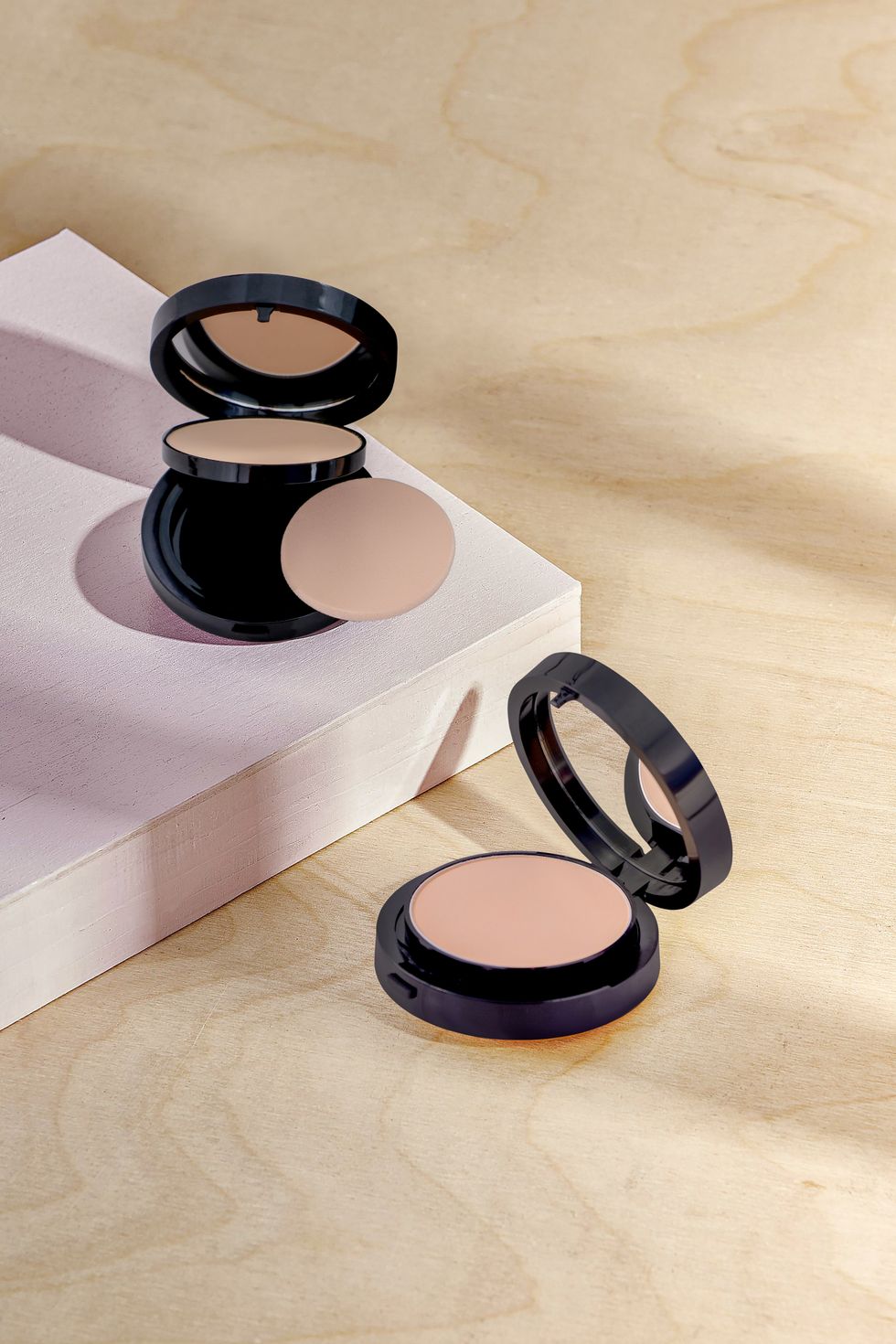
Image via 𝐕𝐞𝐧𝐮𝐬 𝐇𝐃 𝐌𝐚𝐤𝐞- 𝐮𝐩 & 𝐏𝐞𝐫𝐟𝐮𝐦𝐞/Pexels
Stem Cells
Stem cells refer to a rather broad category of cells that participate in tissue generation, regeneration and renewal.
Talc
The softest mineral on Earth, talc is a common material in household goods and makeup powders. While many people question the safety of talc, the American Cancer Society does not consider it a concern in cosmetics.
Tea Tree Oil
Tea tree oil is an essential oil that kills bacteria, treats a wide range of acne, serves as an anti-inflammatory, reduces dandruff, and more.
Tretinoin
Tretinoin is a derivative of vitamin A, which means it’s a retinoid. Tretinoin exfoliates skin, creates an even skin tone, calms inflammation, unclogs pores, increases collagen production, and more.
Turmeric
Turmeric powder is made from the root of a Southeast Asian ginger . Its skin benefits include managing oily skin, combating acne, brightening skin, reducing facial hair, and more.
Vitamin A
According to the National Institute of Health, vitamin A is the name of a group of retinoids. That being said, the term "retinoid" refers to three different states of vitamin A: retinol, retinal (or retinaldehyde) and retinoic acid. Ultimately, they all have the same types of skincare benefits, but the difference lies in the conversion process they do or don't have to undergo in the skin to be effective, and subsequently how potent they are. Retinoic acid, which is what prescription-strength products contain, is the strongest, retinols are the weakest, and retinaldehyde falls in the middle.
Vitamin B3
B3 (specifically the amide nicotinamide) has the same benefits that niacinamide has. Nicotinamide is an essential water-soluble vitamin, which is not synthesized in the body, meaning we have to eat it to receive its benefits. In order to reap the brightening benefits of nicotinamide, it needs to be ingested via supplement or applied topically to the skin.
Vitamin C
Vitamin C is an essential nutrient required for the growth and repair of tissues in all parts of the body, including the skin, but we cannot produce it on our own. It has both active and inactive forms. The first form of vitamin C worth mentioning is the pure form, L-ascorbic acid. This is the most biologically active and well-studied form of vitamin C, but there are also several vitamin C derivatives. These derivatives are not pure vitamin C, but are combined with other ingredients to try and keep the vitamin C stable. So when these derivatives come in contact with the skin, they release the pure vitamin C onto the skin.
Vitamin D
Vitamin D is received through two main sources — ingestion and sun exposure. Without adequate levels of vitamin D in your body, your skin may be subject to a weakened skin barrier, increased dryness and chance of infections, increased acne, eczema, and rosacea.
Vitamin E
Vitamin E is an antioxidant vitamin and oil that protects the lipid barrier, keeps skin moist, heals skin, protects skin from the sun and more.
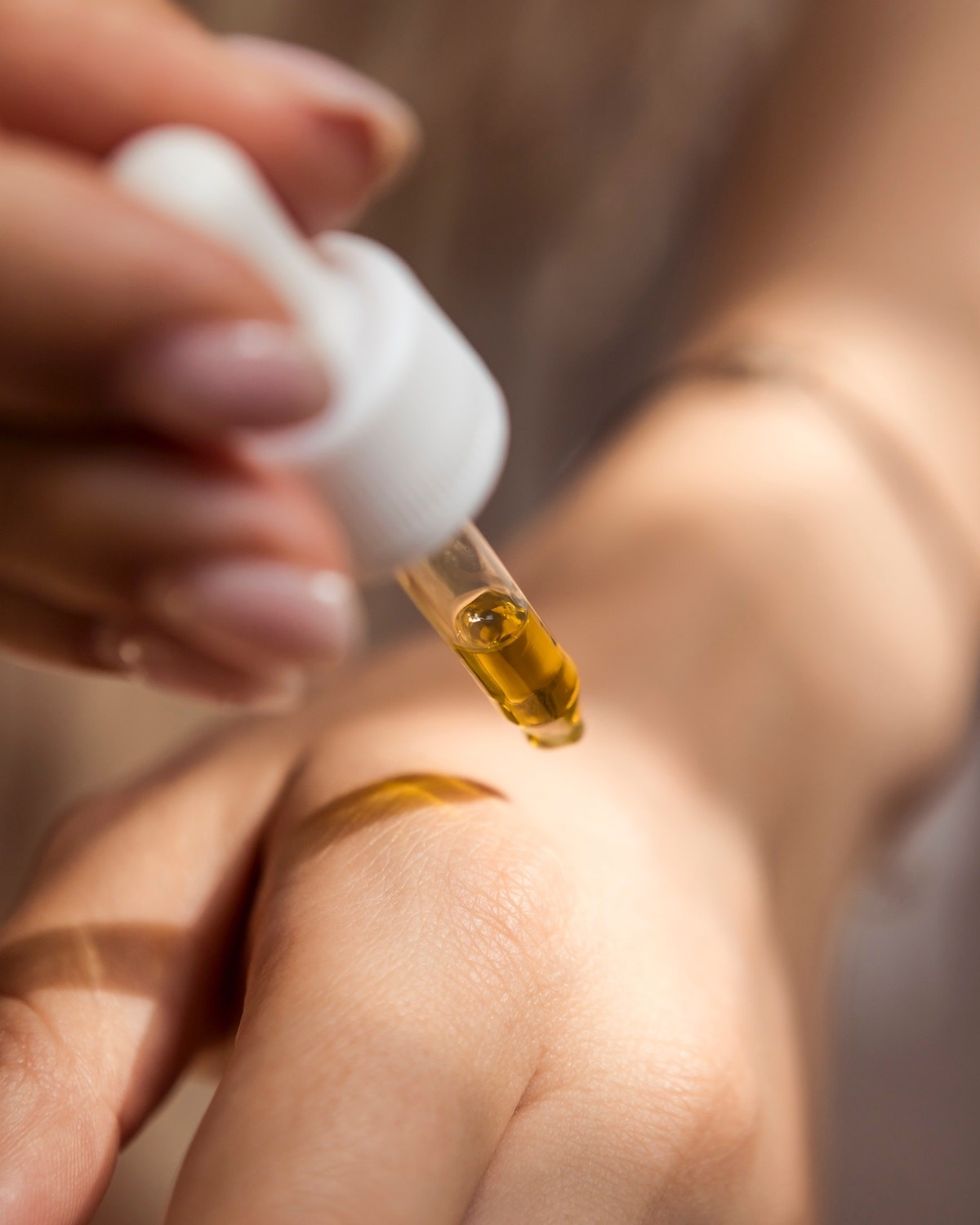
Image via Enecta Cannabis extracts/Unsplash
Xanthan Gum
Xanthan gum is a common food and skincare ingredient, most often used as a thickener or to bind other ingredients together. In skincare, it creates a beautiful slip and silky feel on the skin, making the product easier to apply and preventing the formula from separating.
Zinc
Zinc is a mineral that has anti-inflammatory and skin-healing properties. It can be used both internally, through diet and supplements, and externally to benefit your skin.
What’s your go-to skincare ingredients and favorite products? Tell us on Instagram!
Header image courtesy of Roman Odinstov / Pexels.


